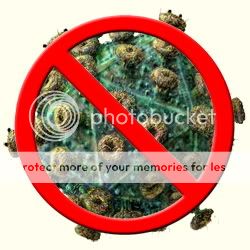How do these evil junk emailers get your email address?
* Your ISP might stupidly post a list of their clients' email addresses (yours) on a web page
* You sign up for any service on the net, and they request your email address as part of registration
* You give your details to a company like Telstra, for a product or service that they provide
* You post a message to a bulletin board or newsgroup using your real email address
* You have a web page and want to include information such as contact details, including your email address. The spammer has software that reads the pages on the internet and collects all the email addresses it find.
Damned annoying. My ISP gave me a free email account that I *NEVER* use or give out. I don't like being tied to an ISP address as it causes problems when I change ISPs. GMail, Yahoo, Hotmail all provide excellent services for free. Use them! These services even filter out the spam email quite nicely. Since I never use this account, or give the details to anyone, imagine my surprise when I accidentally logged in and found it full of junk mail. Since nobody had the details except for me and the ISP then I assume the ISP sold the details or they stupidly left them around somewhere.
I have a very old Yahoo email account that I freely give out when registering for anything and this account receives nearly 6000 spam messages a month. I have heard of worse, but I have not been truly prolific about spreading this address. Fortunately Yahoo provides some excellent spam filtering and this account is still usable.
Spam comes via the telephone too. I moved house and got a new land line telephone number. I had to give the number out to a couple companies to have the power connected, insurance, the bank. Then I started getting junk telephone calls the second day I had the number. They already knew my name. At least one of these "respected" companies (Telstra, Energex, WestPac) is selling my details. I know that Credit Card points collecting schemes like FlyBuys recently altered their privacy policy in order to "share" my information.
Sure, Australia might cause a lot of stress to the telemarketers, but then maybe they have that karma coming their way. Come on, I mean, if someone had Telemarketer written on their T-Shirt, would you really slow down your vehicle when you saw them cross the road?
The toughest is the web page deal. If you have a web page, you usually want to include your email address. Spammer programs just trawl the web and harvest these email addresses at will. What are the alternatives? Well have a nice email script program that has your web server send the email. This is awkward for the emailer as they no longer have a nice email program formatting the text and they don't have a record in their email software that the message was sent, or what they said.
CertainKey, known for their cryptographic code, have an idea of using graphics on your web page. In the top right corner of this article is an email address in wobbly script. This is actually an image of the text, not the actuall text of my email account. Spammers require the text to be on your web page, not a picture of the text. This should foil the spammers. You may have seen similar sorts of images on web based registration forms that ask you to register and enter the text in the image. This sorts out automated spamming software from real people quite well. The down side is that visually impaired people will still have problems and sending an email isn't as easy as a single click to collect the address.
When registering for a sight you might also consider using a very cool service such as mailinator which gives you a temporary email address for a short period of time.
For day to day use, I would highly recommend getting a free email account from GMail, Yahoo, or Hotmail. All of which provide excellent spam filtering. Only give out your ISP email address if the free email addresses are not accepted (happens occasionally).
Your email software may very well have spam filtering built in, and if it doesn't you should hunt around for alternative software that does. Your ISP should be filtering for spam, and it should be free (you hear that Telstra?!) If not then you should redirect email (which should also be free) to your yahoo or gmail account and let that account do the filtering.
Lastly, never ever buy anything advertised in spam. Never buy anything from a telemarketer or door to door salesman. They rely on 2% of the population using their services and this makes them rich. Just don't do it. Ever.


